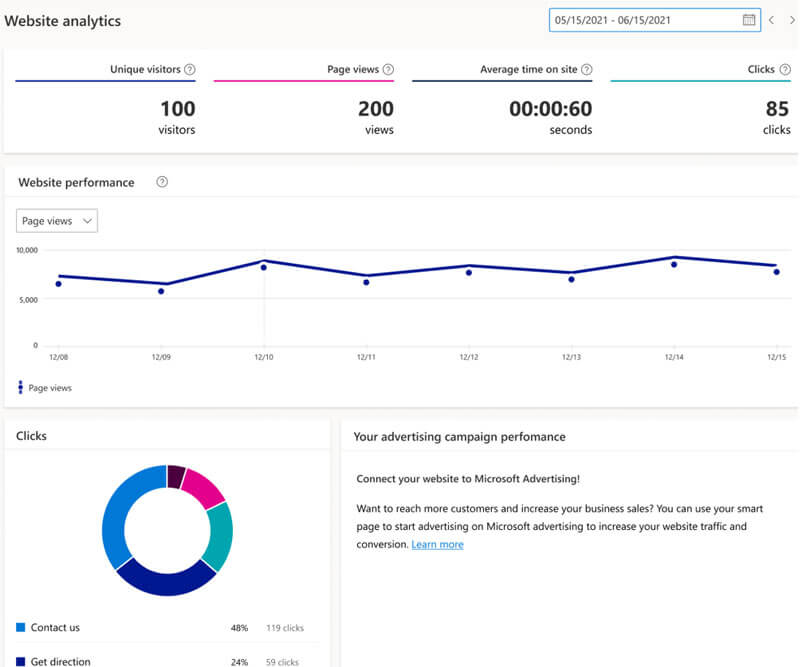Search Engine Land’s daily brief features daily insights, news, tips, and essential bits of wisdom for today’s search marketer. If you would like to read this before the rest of the internet does, sign up here to get it delivered to your inbox daily.
Good morning, Marketers, let’s rewind the clock just a few days.
Sunday, October 10 was World Mental Health Day. I typically don’t mention such days after they’ve passed, but it was also my birthday so I’m hoping you’ll let it slide — and, perhaps sharing my experience may help others prioritize their wellbeing.
I’ll keep it short: I never explored therapy as a younger person, but once 2020 came around, I found myself more frequently frustrated and overwhelmed by even the most minor inconveniences. And I’m not alone. Data from the 2021 Marketing Week Career and Salary Survey reveals 40.2% of the 2,453 respondents surveyed say lockdowns, COVID worries, and working from home has had a “somewhat negative” or “very negative” impact on their mental health.
This summer, I enrolled in weekly therapy sessions. For me, the experience has been a mixed bag but knowing that I’ve shaken off the inertia and sought help has been enormously comforting. And, in general, I feel slightly less anxious because I know there’s always someone I can reach out to.
The first step can be the hardest. If you’re trying to get started, Mayo Clinic has a solid list of tips for finding a mental health provider and the National Alliance on Mental Illness has some great questions for you to ask potential therapists. Thank you for allowing me to share that message — keep on scrolling for the latest search news.
George Nguyen,
Editor

Google Search Console’s public-facing testing tools (specifically, the AMP, Mobile-Friendly and Rich Results testing tools) are being updated with new features to more closely align with the URL Inspection tool, the company announced yesterday. The update will bring the following fields to the public-facing tools:
- Page availability – Whether Google was able to crawl the page, when it was crawled or any obstacles that it encountered when crawling the URL.
- HTTP headers – The HTTP header response returned from the inspected URL.
- Page screenshot – The rendered page as seen by Google.
- Paired AMP inspection, Inspect both canonical and AMP URL.
This should help you align what you are reporting on between the various Google tools. Just yesterday morning Google said a discrepancy between the URL inspection tool and the crawl status reports may cause confusion. Having all these tools more aligned may lead to less confusion and a more efficient use of your time.
Microsoft announces updates to Smart Pages website builder

In February, Microsoft launched Smart Pages, a free website building service to help small businesses that may not have a website. Based on customer feedback, the company announced new features for the Smart Pages service this week.
Now, business owners can publish a standalone Smart Page site — without additional social and advertising tools from Microsoft’s Digital Marketing Center — for free, no payment info required. If business owners choose to partake in Microsoft Advertising later, they can easily sign up when they’re ready. There’s also a new reporting feature (shown above) that allows marketers to track pageviews, clicks, and more all within the platform. And, those managing a Bing Places account can now create a Smart Page site from their account and integrate the two properties.
Why we care. Many small businesses operate without a website, utilizing Facebook pages and local listings as their “hub” for customers, but having your own property is critical to controlling your messaging, optimizing to reach your target audience and driving in more critical traffic and potential customers. These updates open up the Microsoft Smart Pages website builder to help even more SMBs create an owned online presence and optimize it to drive more qualified leads and customers.
Google publishes new help documents on controlling titles and descriptions in search

Google has published two new documents to help publishers control what Google shows in the search results for the title and description of the listing. The company also introduced a new term for the title of a search result: “title link.”
The first document is named “Control your title links in search results” and it goes through best practices for writing title elements, how Google creates title links for the search results, how to avoid common issues and how to submit feedback to Google on this topic. The second new help document is named “Control your snippets in search results” and it covers how snippets are created, the differences between rich results and meta description tags, how to prevent snippets or adjust snippet length and the best practices for creating meta descriptions.
Why we care. These documents should provide additional clarity on how Google shows your search result snippets and how you can better control what comes up in Google Search. Also, having a designated name for titles in search results (“title link”) can help eliminate miscommunications among search marketers and Google.
Crawl, slide, scream
So, that’s why there was a spike in “Crawled – currently not indexed.” At the end of September, some SEOs began noticing more “Crawled, Not Indexed” types of notices in their GSC reports. Google’s Daniel Waisberg investigated and Google has explained, via Twitter, that “This is because the Index Coverage report data is refreshed at a different (and slower) rate than the URL Inspection. The results shown in URL Inspection are more recent, and should be taken as authoritative when they conflict with the Index Coverage report.” And, data shown in the Index Coverage report should reflect the accurate status of a page within a few days.
“It’s time to let [Facebook] slide.” Not as a political statement, but as a marketing opportunity for small businesses — that’s John Jantsch’s take. In his LinkedIn post, he argues that, without a decent following and substantial engagement, time spent posting on Facebook will have little impact for SMBs.
For the Trekkies among us. But, most search professionals will understand the reference. Sweet dreams, y’all.
http://feeds.searchengineland.com/~r/searchengineland/~3/1ctxDNiYMII/google-search-consoles-public-facing-tools-to-match-url-inspection-tool-tuesdays-daily-brief-375102


